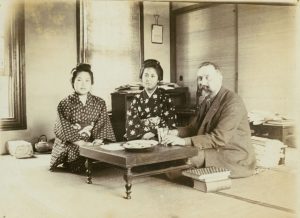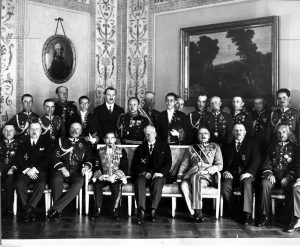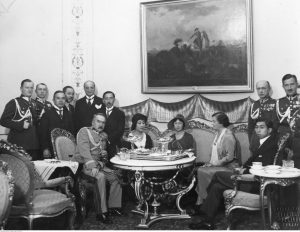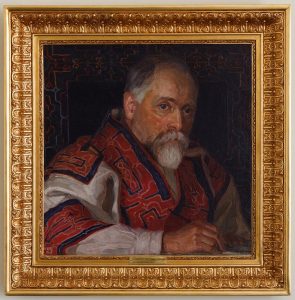The outbreak of the Russo–Japanese War in 1904 led Józef Piłsudski to make contact with accredited Japanese diplomats in European states with a view to future co-operation. He tried to get them interested in the idea of creating a Polish legion alongside the Japanese army and in sourcing intelligence from the Poles. In exchange he wanted the Japanese to raise the issue of Polish independence at the forthcoming peace conference and to support the Polish independence movement by providing money and weapons. The Japanese government invited Piłsudski to come to Tokyo for talks. These were only partially successful: although the Japanese rejected the idea of a Polish legion they did provide the Poles with financial assistance, training and armaments. Roman Dmowski, an activist in the nationalist movement, was staying in Japan at the time and he tried to torpedo Piłsudski’s mission.
Józef’s older brother Bronisław Piłsudski (1866–1918) also had connections with Japan. In 1887 he was drawn into the preparations being made by the revolutionary organisation People’s Will to assassinate Tsar Alexander III. After the plot was unmasked Bronisław was sentenced to death, but his punishment was commuted to 15 years of penal servitude in exile in Siberia. There he undertook ethnographical research focusing primarily on the Ainu people who lived on the islands of Sakhalin in Russia and Hokkaido in Japan. This research gave him international fame; a set of unique sound recordings which were recorded onto 100 wax cylinders are one of the results of his work. In 1906 he left to do research in Japan where he became a friend of the writer and poet Futabatei Shimei. As a result of their friendship the Japanese–Polish Association was formed.



